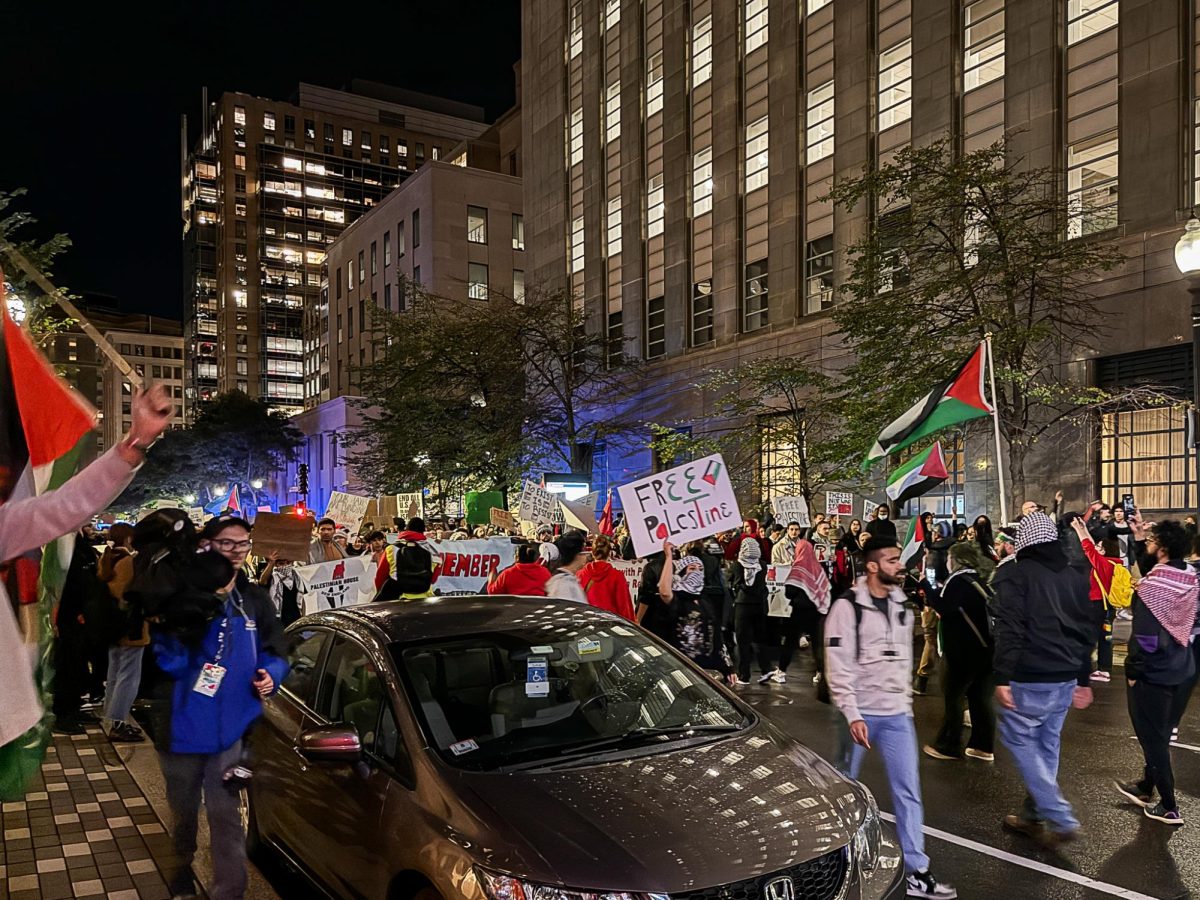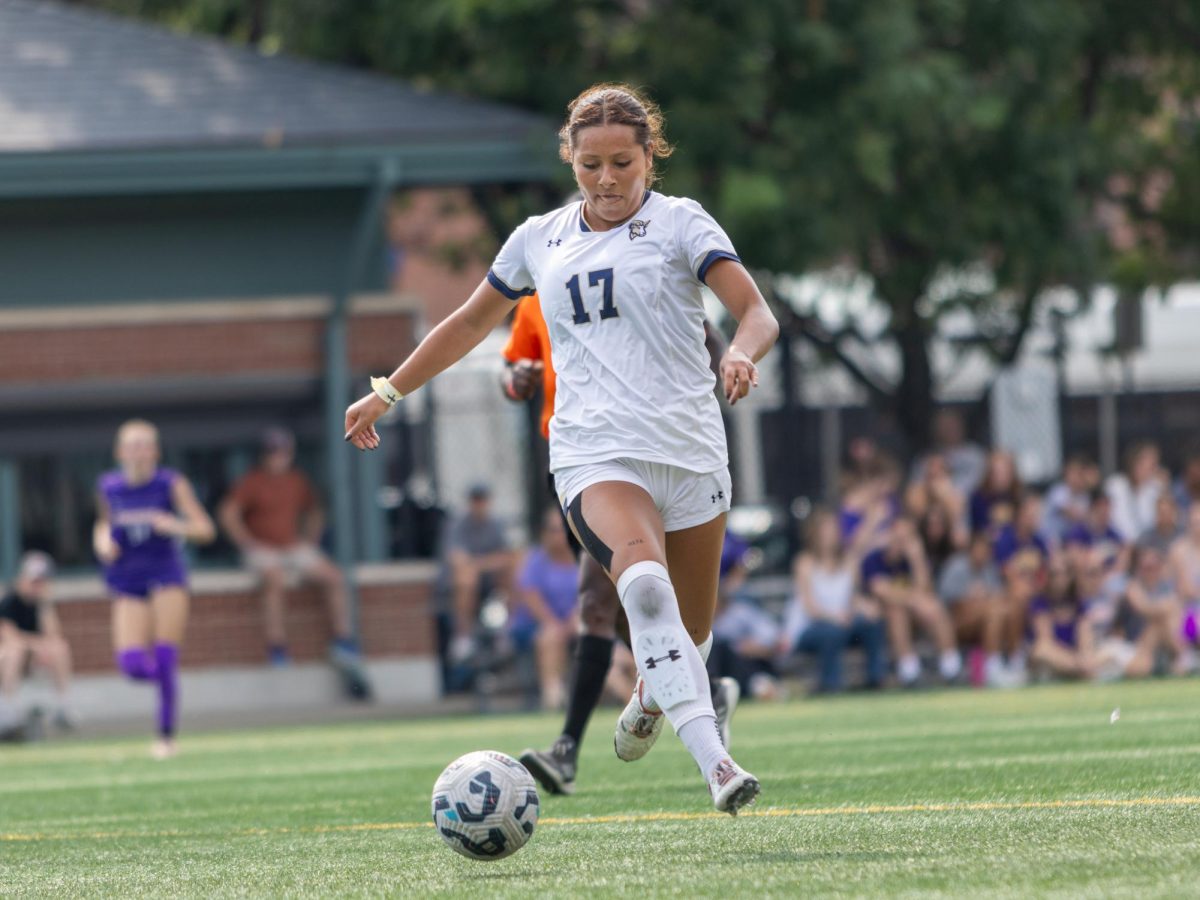Israel declared a state of war Oct. 8, a day after the Palestinian militant group Hamas struck Israel with a surprise missile attack, killing hundreds of civilians and injuring even more.
Even over 5,000 miles away from Boston, the war is affecting the Suffolk University community.
On Oct. 7, Shoshana Madmoni-Gerber, chair and associate professor of communication, journalism and media at Suffolk, couldn’t get ahold of her brother who lives in Netivot, Israel, for hours after hearing of the attacks, due to Jewish Orthodox rules.
“They’re turning off all electronics before Shabbat, so their phones were turned off,” said Madmoni-Gerber. “It took a good four hours in the morning until we got in touch with them.”
Netivot is only five minutes from one of the areas of Israel that got hit the most.
“That was just hellish,” Madmoni-Gerber said. “Because at that point, we were starting to get the extent of what’s going on and realize that they will go into people’s homes.”
Hamas militants had taken around 150 people hostage by Oct. 13 and the Israeli military had struck the Gaza Strip with airstrikes in retaliation, according to the Associated Press.
The area roughly six miles outside of the Gaza Strip was evacuated shortly after the attacks happened. The area was closed Oct. 11 by the Israeli military and made a closed military zone after they regained control of it from Hamas, according to The New York Times.
“As a Palestinian-American, I feel like it’s a personal connection. I have family there, I’ve been to Palestine, it’s literally my family. But at the same time, I feel like an outsider because I’m here in America,” said Hanan Tuffaha, a Suffolk senior.
Israel began preparing for an invasion of the Gaza Strip Oct. 12 in an attempt to disband Hamas. Palestine was put under full siege Oct. 11 by Israel, leaving millions of Palestinians without electricity, food and water.
Truckloads of humanitarian aid were stopped at the Egypt-Gaza border Oct. 16 due to the border being sealed by Israel, according to the Associated Press.
“I’m sort of just watching my president and my country sort of fund the killing of my people back home,” Tuffaha said.
Suffolk President Marisa Kelly offered support to the Suffolk community with a statement emailed to students and staff Oct. 10.
“Our hearts go out to all who are suffering with the horrible news of what has taken place these past several days. To those in our community who have loved ones in the region or are worried about family or friends, please know that we support you and my heart is with you,” wrote Kelly.
An airstrike hit al-Ahli Hospital in Gaza City Oct. 17 and killed at least 500 people, exchanges of blame between Israel Defense Forces and Palestine have ensued and it’s unclear where the rocket originated.
The strike has elevated the concerns of the war spreading to southern Lebanon, according to The New York Times. Hezbollah, a Lebanese militia, and Israel have reportedly been exchanging attacks.
“While I’m trying to grieve, I’m also at the same time trying so hard to educate people on why the killing of Palestinians is wrong, and that Hamas’s actions aren’t reflective of the entirety of Palestine,” said Tuffaha.
Tuffaha also stressed the importance of getting information from reliable sources.
“I just want people to check where they get their information from and to also identify their biases and why their grief can be so selective,” said Tuffaha.
Roughly 3,000 people have died in Gaza since Oct. 7 and more than 1,400 people have died in Israel, according to CNN. Madmoni-Gerber emphasized that the loss of both Israelis and Palestinians has weighed heavily on everyone.
“We have got to continue and hope for better days…The depth of the grief is so profound. It [will] be difficult to overcome and to recover from,” said Madmoni-Gerber.





















asma • Oct 19, 2023 at 11:42 pm
bruh